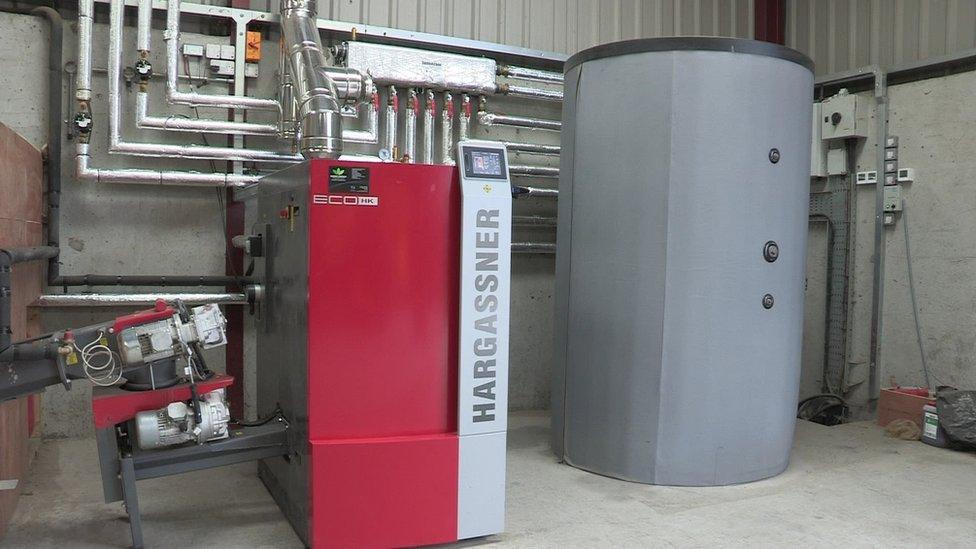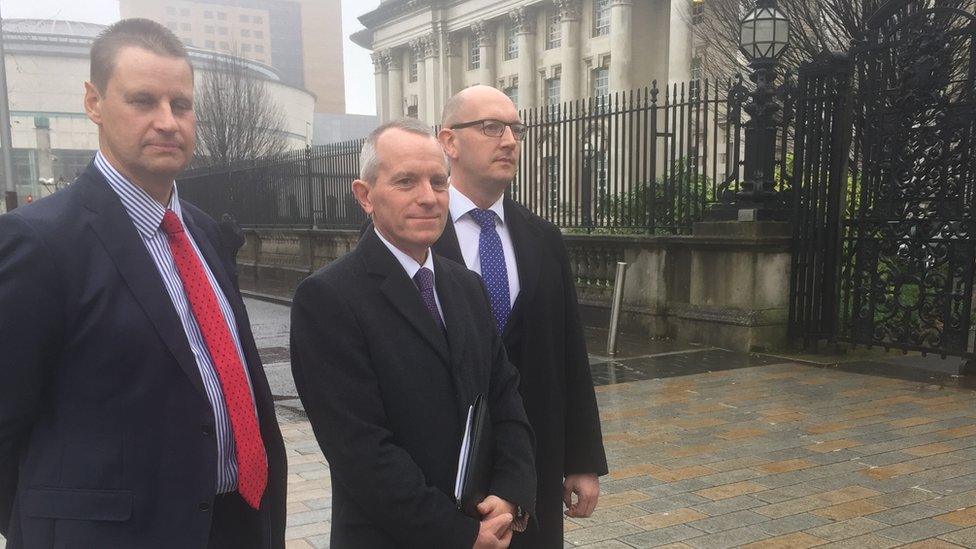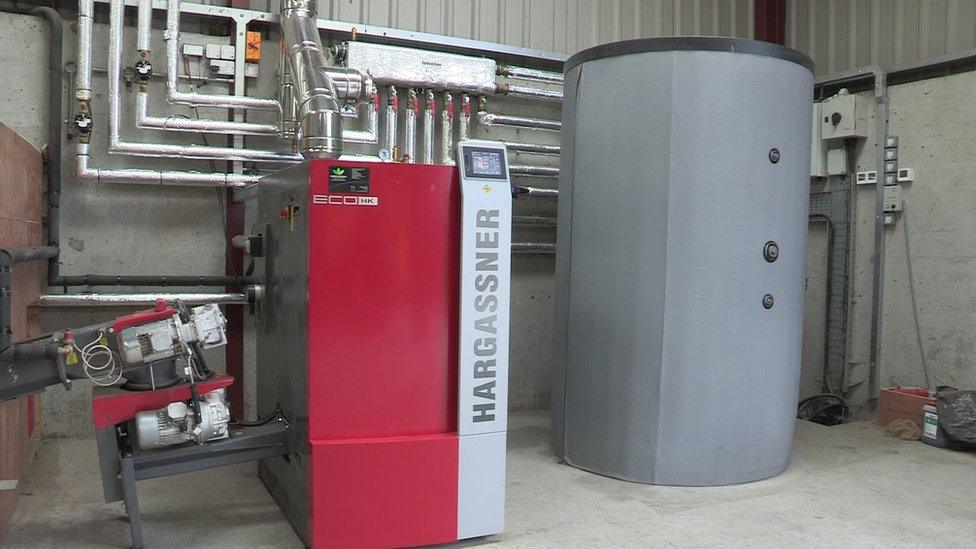RHI boiler owners lose payment cut case
- Published

A group of boiler owners is in court challenging the Department for the Economy's right to put them on a reduced tariff from April 2017
The owners of Renewable heat Incentive scheme (RHI) boilers have lost a case challenging big cuts to their payments.
They had taken the Department for the Economy to court over tariff changes introduced in April 2017.
Those changes moved everyone who had joined the scheme prior to November 2015 onto much less lucrative subsidy payments.
The department claimed it had been done in the public interest and to protect the public purse.
The RHI scheme offered to subsidise the cost of its claimants' fuel for running their heating systems.
However, the fuel cost far less than the subsidy received - effectively meaning claimants could earn more money by burning more fuel.
A lawyer for the department had claimed that without cost controls the taxpayer here would have to pay £700m over 20 years to bail out the scheme.
Lawyers for the boiler owners contested that claim, suggesting the overspend was closer to £160m over two decades.

A biomass boiler, similar to those owned by some RHI scheme claimants
The boiler owners claimed the department did not have the authority to change the rules.
They said the terms of the scheme guaranteed them a set level of payments for 20 years.
And they pointed out that these "grandfathered" payments had been underpinned by a 2013 letter to the banks by then Enterprise Minister Arlene Foster.
In it, she encouraged them to lend money to those seeking finance to invest in renewable heat technology.
The judge, Mr Justice Colton, ruled the department had the powers to make the changes and that there was a "compelling public interest" for them.
He said they were necessary to ensure the scheme was compliant with EU state aid rules and the NI budget was protected from a potential bill of £700m.

Renewable Heat Association members John Martin, Andrew Trimble and Tom Forgrave at the court
He said there was a presumption at the outset that the boiler owners' rights should be upheld as they had joined a government backed scheme in good faith and changes could only be justified in "exceptional circumstances".
He said there was a "high burden" on the department to prove that they were necessary.
However, having tested the public interest argument he had decided that the amendments to the tariff were in the "general interest".
They sought to pursue legitimate aims, which included ensuring that the RHI Scheme was compliant with UK and EU law and that the Northern Ireland budget was protected.
He said the original tariffs had provided overcompensation and the new regulations sought to address this "critical mistake".
'Compelling public interest'
Allowing the regulations to stand unamended would have "severe consequences" for the Northern Ireland budget and he accepted the overspend to be met from the block grant would be close to the department's estimate of £700m.
He ruled that one of the applicants in the case, named only as DA, had spent £111,000 putting in four boilers and had already received £226,500 in subsidy.
"I have come to the conclusion that there is a compelling public interest justifying the interference with the rights of the affected persons under the 2012 regulations," Mr Justice Colton said.
"I consider that the 2017 regulations strike the requisite balance between the public interest and the individual rights of the affected persons."
He said that he accepted that the introduction and operation of the RHI scheme has had a damaging effect on public confidence in good governance here and that there was a risk that the public might be reticent to avail of future government schemes.
- Published12 October 2017

- Published7 November 2017

- Published23 October 2019
